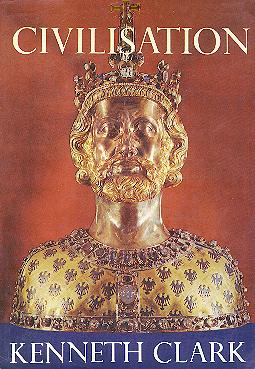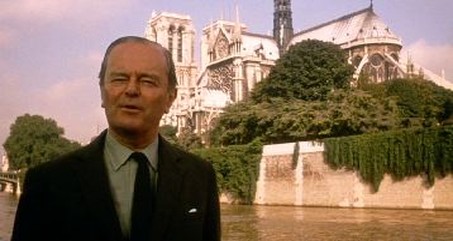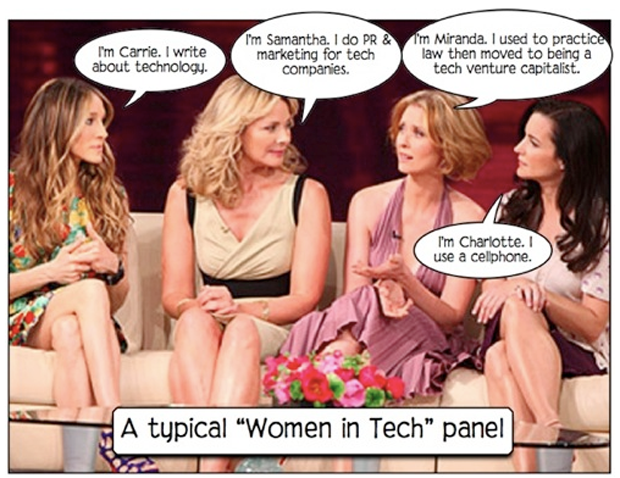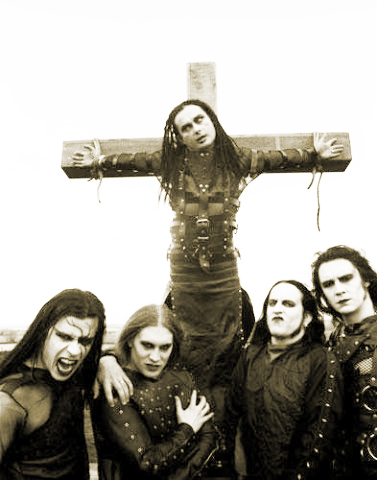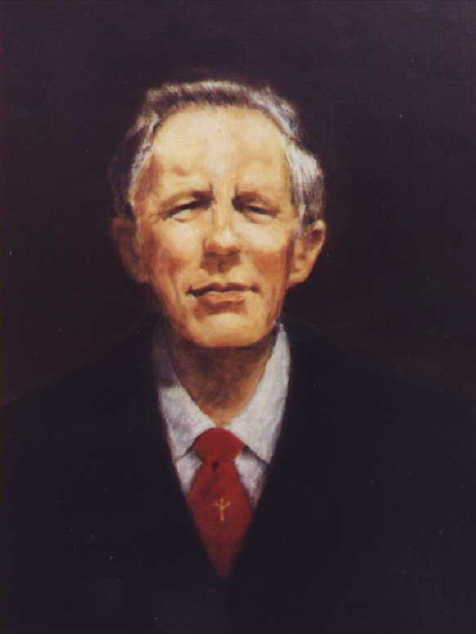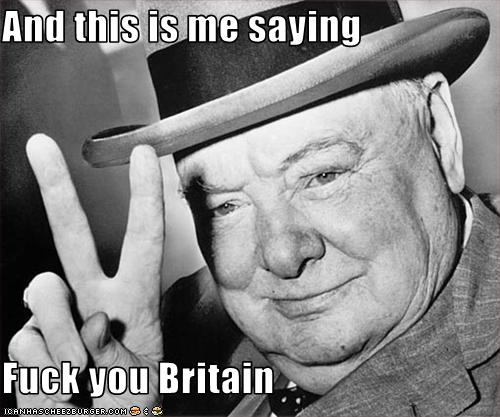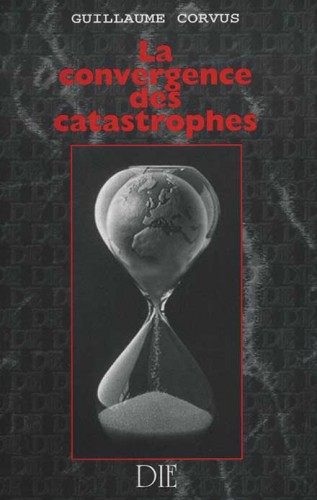Pay me attention please: since I very rarely talk about God.
For my inner daimon, the most sacred entries of the previous incarnation of this blog are those categorized under the title “metaphysics of race.”
While I am definitively not a theist, for which I might be confused with an atheist, and while I am tempted toward agnosticism, deep in my heart I know there’s something panentheist about Nature (not to be confused with pantheism).
Today I received a hate comment precisely in the “metaphysics of race” entry that I treasure the most. I swiftly deleted it. Although I don’t believe in the existence of a personal God I still consider these sorts of comments blasphemous. The curious thing is that the blasphemer, in addition to his vulgarities that I won’t quote, stated that it is “a good thing” that “there will be no different races” in the future. For him my religious commitment to preserve the white phenotype of the most spiritual type of females in a post featuring Maxfield Parrish’s Daybreak, the embedded image within the masthead of my previous blog, is “hate” and, therefore, I must “stop the hating.”
There is no easy way to respond the blasphemer. The mental universe of the self-haters who say it’s good that the white race be melted in the pot along with the unfairer races, or that those who want to preserve it are the “haters,” is so upside-down that makes any rational discussion impossible. They are living in an inverted universe that, for me looking from its inside, is like an astronomically giant ping-pong ball where the space is white with tiny little black holes on the firmament that cannot possibly be… anti-stars?
Instead of trying for their inverted glove to be turned inside-out and get them back into the real world, where the space is black, love is love and hate hate, a wiser approach is to note how William Pierce tried to create a new religion among those who were already racially conscious.
The following is a transcription of a speech delivered by Pierce in 1976 that I discovered at Counter-Currents Publishing earlier this year (here). It reminded me my adolescent infatuation with Hegel’s metaphysics and why I believe that only the eternal feminine would lead the white race to the Absolute:

Every day, I receive letters from our members across the country as well as from people here in the Washington area who have attended our meetings in the past. These letters and questions indicate that there is still some uncertainty in people’s minds as to what we are, what we believe, and what we intend to do. Questions, in other words, as to what it’s all about. I want to try again tonight to answer these questions as clearly as I possibly can.
I’m sure that one of the difficulties people have in trying to understand us is that they can’t figure out quite how to categorize us. They’re accustomed to putting everything they encounter in life into little, mental pigeonholes labeled right-wing, left-wing, communist, racist, and so on. And once they’ve done that, they think they understand the thing.
Now the trouble is that we don’t quite fit any of the customary pigeonholes. And that is because the doctrine of the National Alliance, the truth for which we stand, is not just a rehash of old and familiar ideas but is really something new to Americans.
Perhaps the best way to approach an understanding of the Alliance is to start by getting rid of some of the most troublesome pigeonholes altogether. That is, by pointing out what we are not. We are not, as many people tend to assume at first, either a conservative or a right-wing group. And I’m not just trying to be cute when I say that. I’m not just trying to emphasize that we are a special right-wing group or a better right-wing group. In fact, our truth has very little in common with most right-wing creeds. We’re not interested, for example, in restoring the Constitution. The Constitution, written 200 years ago, served a certain purpose well for a time. But that time is now passed. Nor was its purpose the same as our purpose today. We’re not interested in states’ rights, in restoring the former sovereignty of the individual states. We do not believe, as our conservative friends do, that a strong and centralized government is an evil in itself. It is, in fact, a necessity in overcoming many of the obstacles which lie ahead of us as a people.
What else is dear to the hearts of right-wingers? Do we want to restore prayer and Bible reading to the public schools? Hardly. Anti-fluoridation? Nonsense. Income tax? Abortion? Pornography? Well, we may sympathize more with the right-wing position on these issues than we do with the left-wing position, but they are still only peripheral issues for us. They are not the reason why we are here. They are not the things we are prepared to die for.
There are, in fact, several issues on which we are closer to what would ordinarily be considered the left-wing or liberal position than we are to the conservative or right-wing position. One of these issues is the ecology issue: the protection of our natural environment, the elimination of pollution, and the protection of wildlife. And there are also other issues in which we are closer to the liberals than to the conservatives, although I doubt that we agree with them completely on any issue; just as we seldom, if ever, agree completely with the right-wing on any issue.
The reason for the lack of complete agreement, when there seems to be approximate agreement, with either the right or the left is that our position on every issue is derived from an underlying view of the world which is fundamentally different from those of either the right or the left. That is, to the extent that they have any underlying philosophy at all. Often there is none, and a great many people who identify themselves as liberals, conservatives, or moderates simply have an assortment of views on various issues which are not related to any common idea, purpose, or philosophy.
Before we turn to a positive look at the Alliance, let me inject just a few more negatives. One thing we are not trying to do is to find any quick or easy solutions to the problems confronting us as a people. We have enormously difficult problems. If we are to solve them at all, we must tackle them with more determination, more tenacity, and more fanaticism than they have ever been tackled before. We must prepare ourselves mentally and spiritually for a very long, bloody, and agonizing struggle.
We mustn’t imagine that we are like a squad of soldiers about to assault a cave full of robbers and that the only preparation we need is to be sure our bayonets are fixed and that our powder is dry. This seems to be the attitude of most patriots these days and it is not a realistic one. “Throw out those bums in Washington,” they say “and our problems will be over.”
No. We must think of ourselves instead as the beginning—the barest beginning—of a mighty army whose task is not to clean out a cave full of robbers, but is to conquer an entire hostile world. Before the first shot is fired we must build our invasion fleet with thousands of ships and siege engines. We must lay in massive supplies of cannon balls, powder, and all sorts of other munitions. And we must do a hundred other things.
In other words, we must prepare ourselves for our political struggle before we can count on it yielding anything other than the invariable failure which has rewarded patriots in the past. We must build a foundation which will sustain us for a very long campaign.
Let me give you another analogy. We are like a tribe of hungry, starving people living in a land which, although the soil is fertile, provides relatively little to eat. These people find a few berries growing on bushes and a few edible roots in the ground. All they can think about is that they are hungry and they must fill their bellies. This is their immediate problem. They spend all of their time, day after day, year after year, hunting for those scarce berries on the bushes and pulling an occasional edible root out of the ground. And they never really fill their bellies; they always remain hungry and on the edge of starvation. That is because no one has ever taken a few minutes off from berry hunting and thought further ahead than the immediate problem of filling his belly, now, for this meal. No one has proposed that while some continue to hunt for berries, others in the tribe should tolerate their hunger pains for a while and make themselves a few simple tools, a simple plow from a tree branch perhaps, and a hoe, and then use these tools to plow up some of the most fertile areas of their land and plant a few berries in furrows and keep watch over them so that the birds don’t scratch them up. They could weed their furrows and perhaps divert a portion of a nearby stream for irrigation. If they did this, if they thought beyond their immediate problem, and, to the extent possible, tackled a much larger problem, they would eventually, even though it might take years, solve the problem of hunger which they could never solve when that was all they thought about. The solution to the problem of keeping their bellies full would be to develop an agricultural basis for their berry-picking and root-digging.
Now we need a philosophical and spiritual basis for our political struggle. A basis, of course, which tells us why we must fight and what we are fighting for. But we also want a basis which will tell us how to build a whole new world after we have won the political struggle. In other words, we are not building a basis to use for a month, or for a few years, but a basis which will last a thousand years and more. We are building a basis which will serve not only us, but also countless future generation of our race. And it is high time that we did this. We have drifted without any sense of direction, without any long-range perspectives, for far too long. It’s time that we stopped fixing our sights on next year, or the next election, and fix them instead on eternity.
You know, we Americans are famous for being a practical people, a hard-headed, no nonsense people. We are not great thinkers, perhaps, but we are real problem solvers. We don’t fool around; we plow right into things. That’s how we settled this country. We didn’t agonize about whether we were being fair to the Indians when we took their land; we just walked right over them and kept moving west. That’s what we had to do. We just followed our instincts and used our heads and, more often than not, we did the right thing.
But we also made some mistakes, bad mistakes. Because the southern colonies were ideally suited for certain types of crops which required lots of hand labor, there weren’t any machines back then of course, we brought Negroes into the country. That seemed to make pretty good economic sense at the time. But we really should have thought harder about the long-range consequences of that move. We wouldn’t have had to be real wizards to foresee the future. History provides a number of instructive examples for us to study.
We kept on making mistakes: mistakes based on shortsightedness mostly, mistakes from not being able to give any real weight to anything but the immediate problem, mistakes from not thinking far enough ahead. Analyzing the situation a little more deeply, we can say that we were shortsighted because we had no really firm basis for being longsighted. We had no solid foundation on which to stand in order to evaluate the long-range consequences of our decisions. And, as a result of this, we were suckers for various brands of sentimentality, strictly here and now sentimentality, sentimentality rooted only in the present. It was this sort of fuzzy sentimentality, this Uncle Tom’s Cabin sentimentality, which led to the war between the states and to the dumping of some three million Blacks into our free society a hundred years ago. It also led to our failure to properly control immigration into this country, our failure to prevent the flood of Jews which poured in after the Civil War.
These things troubled many good people. Lincoln was troubled over the potential consequences of freeing the Negroes. Later, others were troubled over the dangers of uncontrolled immigration. But the fuzzy sentimentalists prevailed because those who knew in their hearts that the country was making mistakes didn’t have a really solid basis from which to oppose the sentimentalists. They didn’t have their sights fixed on eternity. They had no all-encompassing worldview to back them up.
And the same problem of shortsightedness is far worse today. A person goes to church and hears his minister tell him that we are all God’s children, Black and White. And although his instinct tries to tell him that the minister is leading him astray, he will not challenge the minister because he has no firm convictions rooted in eternity to back up his feelings. The same is true of the whole country, and of our whole race, today. We are like a ship without a compass. Various factions of the crew are arguing about which way to steer, but no one really knows where the ship is headed. We’ve lost our sense of direction. We no longer have a distant, fixed star to guide us. Actually, it’s even worse than that. We have lost our ability to follow a distant star even if we could see one. We are like a nation, like a race, without a soul. And that is a fatal condition.
No purely political program can have any real value for us in the long run unless we get our souls back, unless we learn once again how to be true to our inner nature, unless we learn to heed the divine spark inside us and base all our decisions on a clear and comprehensive philosophy illuminated by that spark.
Let me tell you a little story, which I believe illustrates our problem. Several years ago, I spoke to a class at a private high school in Maryland. It was the Indian Spring Friends’ School operated by the Quakers, but with a student body which seemed to be about equally divided between Jews and gentiles, with a few token Blacks thrown in. Throughout my talk to the class, a blond girl and the only Negro in the class were sitting next to each other in the front row and kissing and fondling each other in an obviously planned effort to distract me. The subject of my talk was the importance of White Americans developing a sense of racial identity and racial pride if we are to survive. When I finished, a White student, about 17-years-old, rose to ask the first question. His question was, “What makes you think it’s so important for the White race to survive?”
I was flabbergasted and at a loss for words. And while I stood there with my mouth open, a young Jew popped up and gave his own answer. “There is no good reason at all for Whites to survive,” the Jew announced, “because they have contributed nothing to the human race except the knowledge of how to kill people. Other races have contributed everything worthwhile, everything which allows people to be happier and more comfortable.” And then he rattled off a list of five or six names: Freud, Einstein, Salk, and a few others—all Jews. I then asked him if he himself were a Jew and he replied with as much arrogance and contempt as he could muster, “Yes I am and proud of it!” At this point the whole class, Whites included, rose and gave the young Jew a standing ovation. The teacher at the back of the room had a big grin on his face.
Needless to say, my talk was pretty well wasted on that class. The White kids in there had been subjected to so much moral intimidation, they had been pumped so full of racial guilt and self-hatred, their minds were so twisted, that it’s doubtful whether anyone could straighten them out. Certainly no one could in an hour’s time.
But the thing which bothered me even more than the phony collective racial guilt which had been pumped into those boys and girls, was my inability to answer the White kid’s question. Why should we survive? That’s one of those questions like, why is good better than evil? Or, nowadays, why is heterosexuality any better than homosexuality? If two people want to have sex together, who are we to say that it’s better that they be a man and a woman than that they be two men or two women? A related question concerns racial mixing: why shouldn’t a Black man and a White woman, or vice versa, live together if they can be happy? These are questions which most White people, even normal healthy White people, cannot answer satisfactorily today.
A hundred years ago, before the Jews came flooding into our country and taking over our mass media and our educational system, we might not have really needed answers. We just knew that it was important for our race to survive and to make progress. We knew that homosexuality and interracial sex were wrong. Our intuition told us this. The answers were in our souls even if we couldn’t express them in words. But then the Jews—who are clever people, very clever people—came along, and they began asking these very questions. And when we couldn’t answer them, they began providing their own answers.
Now all of us here tonight know what the Jews’ answers are. We read them in our newspapers and hear them on television every day. Some White people, in fact a majority at first, did oppose the Jews’ plans. But their reasons for opposing them were all the wrong ones. For example, when asked “Why shouldn’t your son or daughter marry a Black?” their answer was “Well, two people with such different backgrounds won’t be happy together. They will have children of mixed race who won’t be accepted by either Whites or Blacks. There’s a better chance for a marriage to work out if both partners are of the same race. The world just isn’t ready for inter-marriage yet.” Well, of course, the Jews made pretty short work of such shallow and superficial objections. The problem was that our people had already accepted most of the basic Jewish premises. Our criterion for choosing a marriage partner was happiness—happiness! –either ours or our children’s. No one had any really solid answers, answers based on something fundamental. Certainly the churches, whose role should have been to provide the right answers, were of no help. They in fact were, and are, in the forefront of the Jewish assault on all our values and institutions. They are so much in hock to the Jews that they are busy now trying to figure out how they can rewrite the New Testament, removing or changing all the parts that Jews consider offensive, such as the Jewish responsibility for the crucifixion of Jesus.
The Jews were able to continue hammering away at White Americans—probing, prying, asking more questions, raising more doubts—until we had lost all faith in what we had earlier known intuitively was right. Our ethics, our code of behavior, our values, our feelings, and our aspirations all went down the drain. What they gave us instead was the new “morality” of “if it feels good, do it.” Our children are taught in school that progress means more happiness for more people. And happiness, of course, means feeling good. The whole thing is summed up in a Coca-Cola commercial. I’m sure you have all seen it on TV: a ring of twenty people or so, of all colors and both sexes, obviously as happy and care-free as they could possibly be, are all holding hands and singing, “I’d like to give the world a Coke.” Now who but the meanest and most narrow-minded racist is going to criticize something like that?
The average American—even one who does not approve of racial mixing—doesn’t know how to respond to a clever appeal like the Coca-Cola commercial, certainly the average White kid in our schools today doesn’t. And once he has unconsciously accepted the hidden premises in that commercial—and the entire attitude toward life from which it is sprung—the question I was asked at the Indian Spring Friends’ School naturally follows. Since people of all races are equal and essentially the same—Whites, Negroes, Jews, Gypsies, Chinamen, Mulattoes—and since they can all be happy doing the same sorts of things, why should we worry about what a person’s race is, or even about our own? Wouldn’t sex be just as pleasurable for us if we were Black instead of White? Wouldn’t a Coke taste just as good? What difference does it make if our grandchildren are Mulattoes so long as the economy is still strong and they can all afford nice cars and 25-inch color TV sets?
Now, one can attack this Jewish fantasy world with facts. One can point out that although Jews are clever, they haven’t done everything worthwhile in the world. White people have done a few things besides kill other people. And one can point out that racial differences are more than skin deep. One can talk about IQ scores; one can cite historical examples in which civilization after civilization has declined and crumbled when the race that built that civilization began intermarrying with its slaves. But none of that is really going to convince the kid whose main concern is whether the consumers of the world—whether the happy Coke drinkers—will be any less happy in a world without Whites.
What we failed to do in the past was to understand the deep inner source from which our feelings and intuition about race and other matters sprang. We had no really sound and healthy worldview to offer that White kid in place of the slick, plastic, Jewish worldview of the Coca-Cola commercial. And so we couldn’t really answer his question about the survival of the White race any more than we could give him a really convincing reason about why he shouldn’t do just anything that feels good—whether it is taking dope, or sleeping with Blacks, or experimenting with homosexuality.
You may think of that kid as an extreme liberal case, but he is really no different than the average—and I mean the average—businessman in this country. He used to be a segregationist a few years ago, but he became an integrationist when the Blacks started rioting and burning things in the late 1960′s. After all, riots are bad for business. Their individual views of the world may be a little different, but the businessman and the kid in Maryland both base their thinking on one and the same thing—egoistic Jewish materialism. The kid who believes that the purpose of life is happiness, knows that there are not many things on this earth happier than a bunch of pickaninnies splashing in a mud puddle. And the businessman who believes that the purpose of life is to make money knows that a Black customer’s money is just as green as a White customer’s.
A person who accepts that sort of basis, indeed, cannot see any really convincing reason why the White race should survive. His aim is to live a “good life.” And for him that means a life with lots of money, lots to eat and drink, plenty of sex, new cars, big houses, and constant diversions. Entertainment: that is all he lives for, all he cares about, and all he understands. Talk about purpose to him and his eyes go blank. Talk about eternity and he laughs at you. He knows that he won’t live forever, although he doesn’t like to think about that. He intends to get as much out of life as he can. Anything beyond that means nothing to him. What a difference that is from the attitude toward life that our ancestors in northern Europe had a few hundred years ago. They were greedy for money like we are, of course, and they liked to enjoy themselves when they could, but that was not the meaning of life for them. Their attitude toward life and death was perhaps best summed up in a stanza from one of the old Norse sagas. It goes like this:
Kinsmen die and cattle die,
And so must one die one’s self,
But there is one thing I know which never dies
And that is the fame of a dead man’s deeds.
The German philosopher Arthur Schopenhauer expressed essentially the same idea when he said that the very most any man can hope for is a heroic passage through life. Greatness, in other words, instead of happiness, is the mark of a good life. Now I don’t mean to suggest that we must all think in terms of becoming famous or of dying heroically on the battlefield with sword or gun in hand. Some of us may be granted that, but what is important, what all of us can do, even those who think of ourselves as basically unheroic, is to adopt the attitude toward life and toward death which was implicit in the old sagas and in Schopenhauer’s statement.
The attitude of living for the sake of eternity, of living with eternity always in mind instead of living only for the moment; the attitude that the individual is not an end in himself, but rather that the individual lives for and through something greater—in particular, for and through his racial community (which is eternal)—seems to have eluded most of us today. It is an attitude which is diametrically opposed to the Jewish attitude of egoism and materialism. And yet it is the alien Jewish attitude that has been adopted by most Americans today. We have chosen happiness instead of greatness, the moment instead of eternity. We have become a nation—a whole race—of full-time self-seekers, a race concerned with one thing: self-gratification.
The average man, of course, has always been pretty shortsighted and his interests have always pretty much been limited to his own welfare. So the materialism of today that I’ve been talking about is a matter of degree. It has a somewhat stronger grip on the man in the street than it formerly did. But what is worse is that today it also has a grip on our leaders, on our teachers, on our poets, on our philosophers, and even on our priests. It has so thoroughly saturated the souls of all of us that we have reacted to it by becoming spiritually ill. And this spiritual sickness, this loss of our souls, is why we are in such a mess today. And it is why we will be in a worse and worse mess as time goes on. We will never overcome the problems facing us until it is cured.
And please do not misunderstand me. I am not talking about the “wages of sin” in the sense with which many of us may be familiar. I’m not talking about some anthropomorphic deity, some heavenly father sitting on his throne in the sky punishing us, keeping us from overcoming our enemies because we are not fulfilling his commandments. No, that’s nonsense! We are not being punished by any supernatural being. We are in trouble for the same reason that an explorer in a harsh and trackless wilderness is in trouble when he loses his compass and cannot see the sky through the dense foliage. He no longer knows which way to go. That is our most fundamental problem—we do not know where we are going. We have no sense of direction. We have stumbled off the path.
But that is something I really should not have had to tell you because everyone here today knows this. Even if he doesn’t understand yet how or why he knows it. He still knows that the present course our society has taken is wrong. It is unnatural. It is evil. We all know that it is wrong to accept the “I’m all right, Jack” attitude which prevails today. We know that it’s wrong to live only for the present, to forget the past and to ignore the future. It is wrong to have instant self-gratification as our only goal. That’s why we are here. We know that there is something more, something else, a better way. We know this for the same reason we are attracted to beauty and to nobility and are repelled by the ugly and the base, regardless of the artificial fashions of our day. We know it because deep inside all of us, in our race-soul, there is a source of divine wisdom, of ages-old wisdom, of wisdom as old as the universe. That is the wisdom, the truth, which we in the National Alliance want to make the basis of our national policy. It is a truth of which most of us have been largely unconscious all our lives, but which now we have the opportunity to understand clearly and precisely.
Our truth tells us that no man, no race, not even this planet, exists as an end in itself. The only thing which exists as an end in its self is the whole. The whole of which the things I just named are parts. The universe is the physical manifestation of the whole. The whole is continually changing and always will be. It is evolving. That is, it is moving toward ever more complex, ever higher, states of existence. The development of life on earth from non-living matter was one step in this never-ending evolutionary process. The evolution of man-like creatures from more primitive forms of life was another step. The diversification of these creatures into the various races and sub-races, and the continued evolution of these different races in different parts of the world at different rates, have been continuations of this process. The entire evolution of life on earth from its beginning some three billion years ago, and in a more general sense, the evolution of the universe over a much longer period before the appearance of life, is an evolution not only in the sense of yielding more and more highly developed physical forms, but also an evolution in consciousness. It is an evolution in the self-consciousness of the whole.
From the beginning, the whole, the creator, the self-created, has followed, has in fact embodied, an upward urge—an urge toward higher and higher degrees of self-consciousness, toward ever more nearly perfect states of self-realization.
In man—in our race in particular—this upward urge, this divine spark, has brought us to a new threshold. A threshold as important as that which separated the non-living matter of three billion years ago from the living matter into which it evolved. Today’s threshold is a threshold in self-consciousness. We stand now on the verge of a full understanding of the fact that we are a manifestation of the creator, that we are the means and the substance by which the creator, by which the whole of which we are a part, can continue its self-evolution.
When we understand this, when we heed the divine spark within us, then we can once again ascend the upward path that has led us from sub-man to man and can lead us now from man to super-man and beyond. But we cannot do this, we cannot find the path, without this consciousness, without this understanding that the responsibility is ours, that we are not the playthings of God but are ourselves a manifestation of God and can become, must become, now a conscious manifestation. Only in that way can we fulfill our ordained destiny.
Let me emphasize again, in different words, what I told you earlier this evening about building a spiritual basis for our political work. The Alliance’s long-range approach is necessary, absolutely necessary, and unavoidable. The short-range approaches that other patriots are trying, and have been trying for many decades now, the thousands of ad hoc solutions of quick and easy one-issue approaches, whether of tax-rebellion or of bomb throwing, cannot solve the ultimate problems with which we are faced. They cannot give us back our souls. It may seem ironical that we should be trying to conquer and transform the whole world, that we should be planning for eternity, when no one else has been able to make a successful plan for achieving very much more limited goals, restoring the constitution, for example, or getting us out of the United Nations, or what have you. But it is the very shortsightedness of those working for these limited goals which has been the cause of their failure. And it is our rooting of our plans in eternity which gives us confidence for their ultimate success no matter how long it may take us.
So I tell you again, our approach is not just a matter of choice; it is necessary. There is no other way but ours. There is only one path. And there is something else we must understand. Our philosophy, our quest for the upward path, is not something that we should accept reluctantly because we see it as necessary to the solution of our race problem, our Jewish problem, and our communist problem. It is not something we accept because we cannot find an easier approach to these problems. No! If we look at it that way then we still haven’t rid ourselves of the shortsightedness that has been our curse in the past. We must understand that the truth for which we stand transcends all the problems of the present. Finding our way once again to the one true path transcends all questions of economics, of politics, and ultimately even of race, just as eternity transcends tomorrow. So let’s stop putting the cart before the horse mentally and spiritually. Let’s take off our mental blinders. Let’s realize that the truth has a value in itself and that dedication to the truth is a virtue in itself. This is all the more true in a world in which falsehood seems to rule.
The problems with which we are faced in the world today are serious ones and they must be solved. But the first and most important task, the task on which all our other problems must eventually depend for their solutions, but also the task which would still be just as important for us to accomplish if all our other problems didn’t exist, is the task, the one task, assigned to us by the creator. That is the task of achieving full consciousness of our oneness with the whole, achieving full consciousness that we are a part of the creator and that our destiny is to achieve the single purpose for which the universe exists—the self-realization of the creator.
Our truth is a very simple truth, but its implications are enormous beyond imagining. To the extent that we understand and accept it, it sets us apart from all the people around us. Our acceptance of this truth marks us as the only adults in a world of children. For implicit in what we believe is our recognition and acceptance of our responsibility for the future of the universe. The fate of everything that will ever be rests in our hands now. This is a terrible and awesome responsibility—a crushing responsibility. If we were only men we could not bear it. We would have to invent some supernatural being to foist our responsibility onto. But we must, and can, bear it when we understand that we ourselves embody the divine spark which is the upward driving urge of the universe.
The acceptance of our truth not only burdens us with the responsibility that other men have shunned throughout history, it bestows on us a mantle of moral authority that goes along with the responsibility, the moral authority to do whatever is necessary in carrying out our responsibility. Furthermore, it is an acceptance of our destiny, an unlimited destiny, a destiny glorious beyond imagination, if we truly have the courage of our convictions. If we truly abide by the demands that our truth places upon us, it means that while other men continue to live only for the day, continue to seek only self-gratification, and continue to live lives which are essentially without meaning and that leave no trace behind them when they are over, we are living and working for the sake of eternity. In so doing, we are becoming a part of that eternity.
For some, our task may seem too great for us, our responsibility too overwhelming. If they are correct, if we choose to remain children instead of accepting our adulthood, if we continue the shortsighted approaches of the past, then in the long run we will fail utterly. The enemies of our race will prevail over us and we and our kind will pass away forever. All our sacrifices, and all the dreams and sacrifices of our ancestors, will have been in vain. Not even a memory of us, or our kind, will be left when the creative spirit of the universe tries, in some other place, in some other time, in some other way, to do what we failed to do. But I do not believe that we will fail. Because in working to achieve our purpose, we are finding our way once again to the right and natural path for our people. We are working once again with the whole. And we have a mighty tradition behind us.
Our purpose is the purpose for which the earth was born out of the gas and the dust of the cosmos, the purpose for which the first primitive amphibian crawled out of the sea three hundred million years ago and learned to live on the land, the purpose for which the first race of men held themselves apart from the races of sub-men around them and bred only with their own kind. It is the purpose for which men first captured lightning from the sky, tamed it, and called it fire; the purpose for which our ancestors built the world’s first astronomical observatory on a British plain more than 4,000 years ago. It is the purpose for which Jesus, the Galilean, fought the Jews and died 2,000 years ago; the purpose for which Rembrandt painted; the purpose for which Shakespeare wrote; and the purpose for which Newton pondered. Our purpose, the purpose with which we must become obsessed, is that for which the best, the noblest, men and women of our race down through the ages have struggled and died whether they were fully conscious of it or not. It is the purpose for which they sought beauty and created beauty; the purpose for which they studied the heavens and taught themselves Nature’s mysteries; the purpose for which they fought the degenerative, the regressive, and the evil forces all around them; the purpose for which, instead of taking the easy path in life, the downward path; they chose the upward path, regardless of the pain, suffering, and sacrifice that this choice entailed.
Yes! They did these things, largely without having a full understanding of why, just as the first amphibian did not understand his purpose when he crawled onto the land. Our purpose is the creator’s purpose, our path is the path of divine consciousness, the path of the creator’s self-realization. This is the path which is ordained for us because of what we are, because of the spark of divine consciousness in us, and in no one else. No other race can travel this path, our path, for us. We alone must prove whether we are fit to serve the creator’s purpose. And if we are fit, if we once again heed the inner knowledge engraved in our souls by the creator, if we regain faith in the things we once knew were true without fully understanding why and if we now also teach ourselves why, then we will once again be on the upward path ordained for us, and our destiny will be godhood.
Those of you who are with us for the first time have, I hope, gained at least the beginning of an understanding of who we are and of what we want to do. I know that I have left many of your questions unanswered; questions about current political, social, racial, and economic issues; questions about concrete things. We do talk about those things in our meetings. We talk about them in a very concrete and down-to-earth fashion. I’ve discussed them in past meetings and I’ll discuss them again in future ones—the goals of overcoming the enemies of our people, of safeguarding the future of our race, and of building a new order of beauty sanity, strength, and health on this earth, so that our people can progress and mature until they are capable of fulfilling the role allotted to them by the creator. But now I want to be sure that you understand just one thing. If we ever are to achieve these concrete advances, these physical victories, this material renewal of our nation, of our civilization, of our race, then we must first make the spiritual advances that I’ve talked about here. Without the spiritual basis, the material victory will not be achieved.
As I said, in our future meetings we will explore many individual issues in much greater detail than we have here. We hope you will join us in these future meetings and further increase your understanding of our work, and we hope that you will begin to share our commitment to this work. And let me say this especially to those who are with us for the first time, we do not care who you are or what you have believed in the past, nor do we require that you agree exactly with us on a hundred different social, political, economic, and racial issues. All we require is that you share with us a commitment to the simple, but great, truth which I have explained to you here, that you understand that you are a part of the whole, which is the creator, that you understand that your purpose, the purpose of mankind and the purpose of every other part of creation, is the creator’s purpose, that this purpose is the never-ending ascent of the path of creation, the path of life symbolized by our life rune, that you understand that this path leads ever upward toward the creator’s self-realization, and that the destiny of those who follow this path is godhood. If you share this single truth with us, then everything else will follow and we invite you to make a commitment now, today, to join us and work with us.
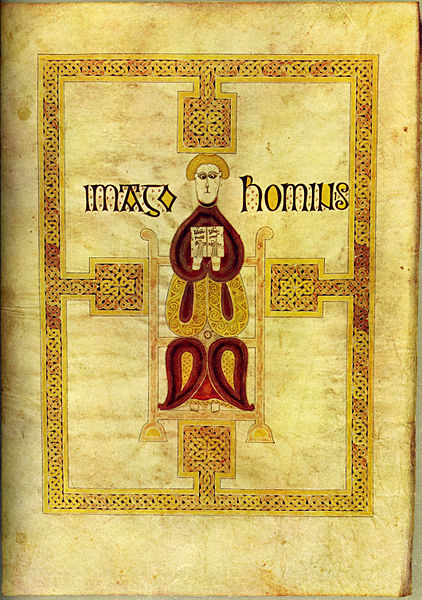 To my mind—and, like Clark, I must say that this is only my personal view—, the imago hominis only means a psychogenic regression in Man’s understanding of himself compared to the Greeks and the Romans. However, the white nationalists’ soft porn spits on the avatar of God, even if I don’t believe in the existence of a personal god.
To my mind—and, like Clark, I must say that this is only my personal view—, the imago hominis only means a psychogenic regression in Man’s understanding of himself compared to the Greeks and the Romans. However, the white nationalists’ soft porn spits on the avatar of God, even if I don’t believe in the existence of a personal god.